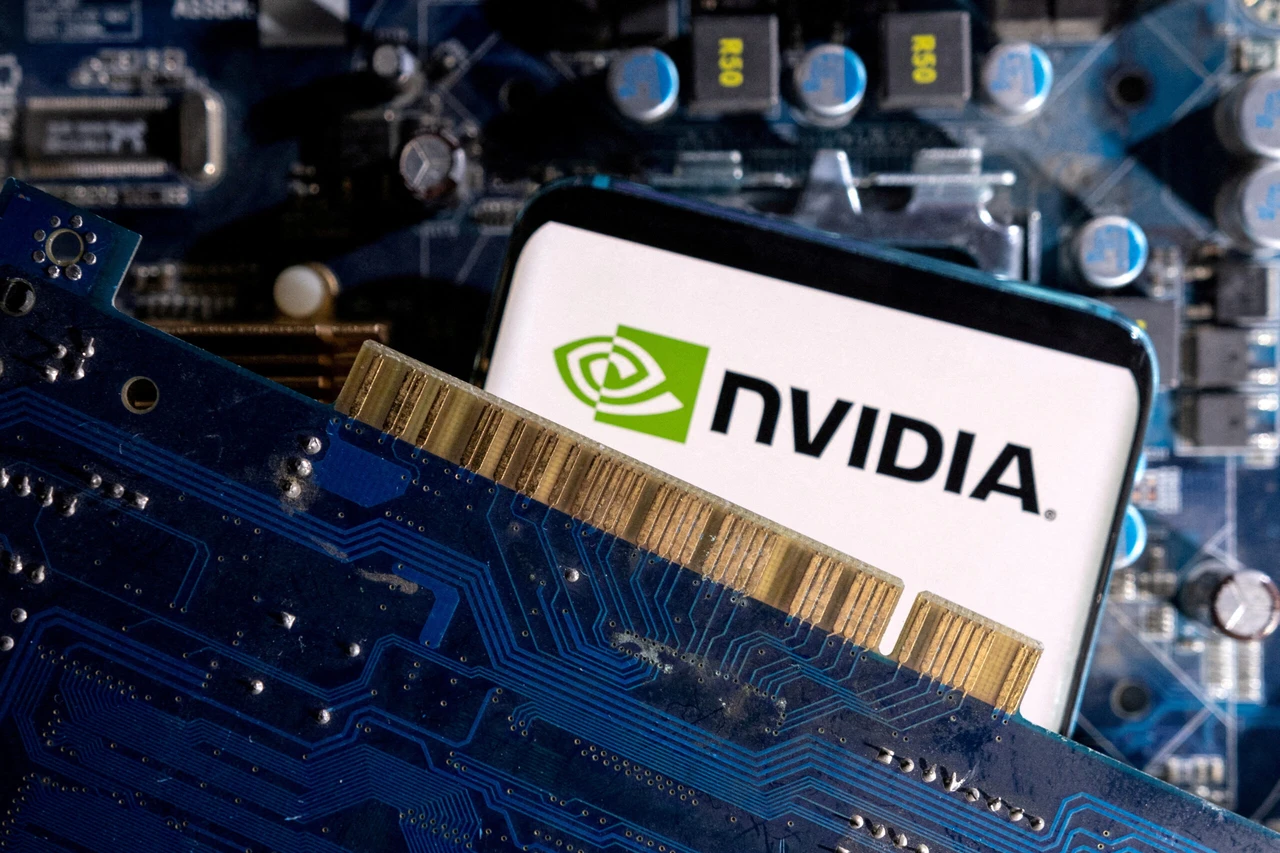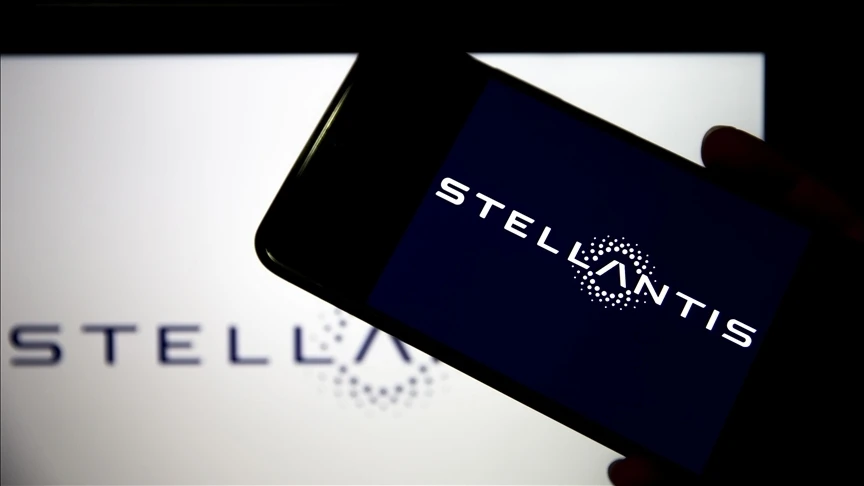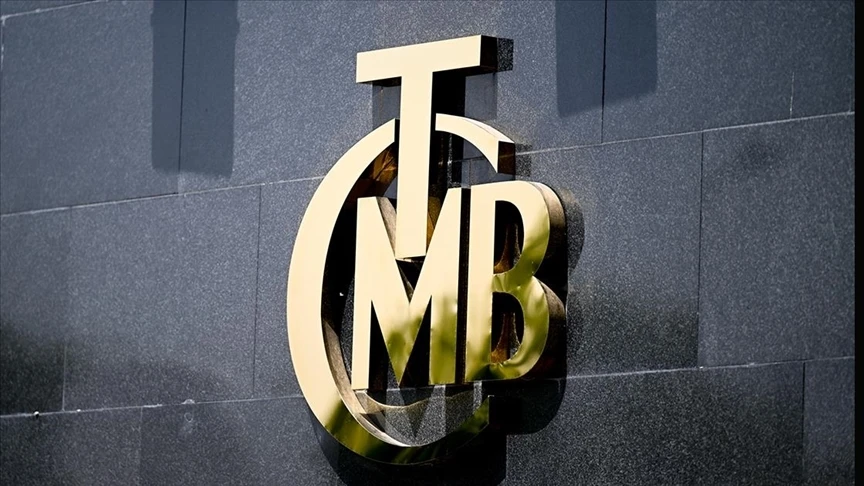Nvidia’s market dominance highlights shifting tech landscape
 A smartphone with a displayed NVIDIA logo is placed on a computer motherboard on March 6, 2023. (Reuters)
A smartphone with a displayed NVIDIA logo is placed on a computer motherboard on March 6, 2023. (Reuters)
Nvidia, known for its innovative strides in artificial intelligence, has now edged out other tech giants to become the world’s most valuable publicly traded company, a development that underscores the shifting dynamics within the tech industry.
This milestone also contributed to the Nasdaq’s seventh consecutive record close, reflecting a broader trend in market confidence despite mixed economic signals from major global economies.
The ascent of Nvidia, which saw its shares jump 3.5 percent to achieve a market capitalization of $3.349 trillion, is a testament to the growing influence of AI technology.
This market cap places Nvidia slightly ahead of industry stalwarts Microsoft and Apple, marking it as the 12th company to lead the S&P 500 since 1926, according to Howard Silverblatt, senior index analyst at S&P Dow Jones Indices.
“It appears to me that this is just the beginning of the AI boom,” said Adam Sarhan of 50 Park Investments, highlighting the transformative potential of AI across various sectors.
On Tuesday, all three major US stock indices posted gains, bolstered by positive movements in global markets. Bourses in Paris, Frankfurt, London, and Tokyo also saw increases, further emphasizing the broad-based optimism among investors.
However, the retail sales report for May in the United States provided a counterpoint to the buoyant market mood, revealing a lag in consumer demand. The largest monthly drop in sales was recorded at gasoline stations, down 2.2 percent, while furniture and home furnishing stores also reported a decline. Despite these figures, investors remain hopeful that a slower economy could prompt the Federal Reserve to ease interest rates.
“This report could be just what investors and the Fed wanted to see — another sign that demand is cooling off but not turning ice cold,” noted Bret Kenwell, US investment analyst at the trading platform eToro. “The figures are a good thing for the Fed and those who are looking for rate cuts later this year.”
In Europe, market gains continued despite less-than-expected growth in German investor confidence. The ZEW institute’s economic expectations index edged up to 47.5 points in June from 47.1 points in May, falling short of the 49.5 points anticipated by analysts surveyed by FactSet.
Axel Rudolph, senior market analyst at the online trading platform IG, attributed the European gains to “bargain hunters entering the fray, even though trading volumes are light ahead of the US Juneteenth holiday on Wednesday.”
The upward trajectory of Nvidia and the broader tech sector highlights a significant shift in market dynamics, driven by technological innovation and the increasing integration of AI. As Nvidia continues to push the boundaries of what is possible in AI, its market dominance is likely to influence the competitive landscape, prompting other tech giants to accelerate their own advancements in this rapidly evolving field.



